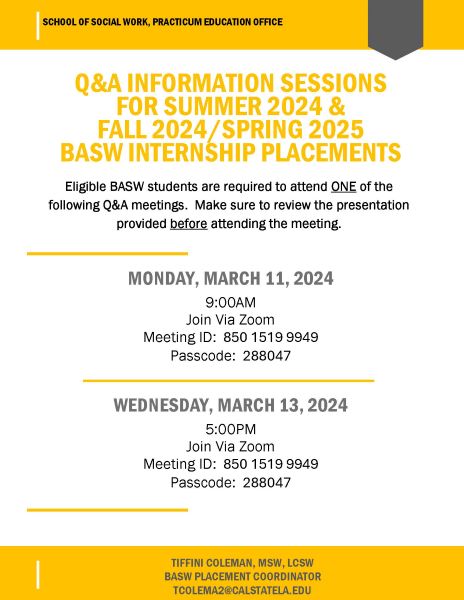Welcome to our returning students and all new students to Cal State LA School of Social Work.
Field Education plays an integral role in the total curriculum for social work students. The experience offers an opportunity for students to integrate and apply theoretical knowledge and social work practice. Fieldwork experience is a vital dimension of students’ undergraduate and graduate social work education. It is designed to provide new and challenging experiences to the students and to maximize learning opportunities. The hours of field practice prepare students to enter the workforce as professional social work practitioners.
The social work profession promotes social change, problem-solving, and empowerment of people to enhance overall well-being. We are change agents in society and in the lives of the individuals, families, and communities we serve. It is a privilege to support and guide you into the rewarding field of social work.
Hermila Melero, MSW, LCSW
Field Education Director
School of Social Work
California State University, Los Angeles
Practicum Supervisor training is only provided during the summer months. Please check back with us by July 1, 2024.
Please review all the information below before attending one of the information sessions.
Q&A Information Session Flyer
BASW Practicum Placement Presentation
BASW Practicum Eligibility Requirements for Fall 2024/Spring 2025
BASW Practicum Eligibility Requirements for Summer 2024

